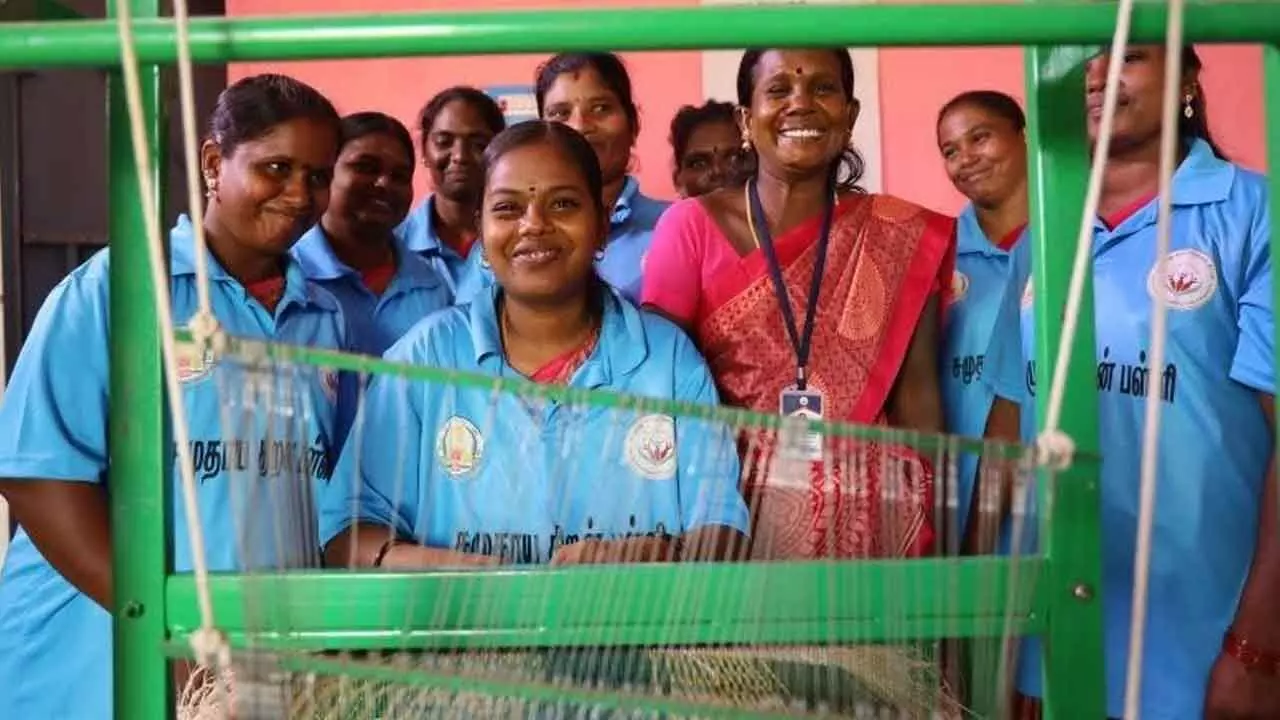Women Deserve Better Opportunities
With 1.2 bn young people entering workforce over next decade and only 420 mn new jobs projected, the urgency to create inclusive, forward-looking employment opportunities has never been greater
Women Deserve Better Opportunities

Women—especially in developing countries—face compounded barriers, from limited land rights and financial access to unpaid care burdens and digital exclusion
Ensuring more and better jobs for women, including those of the future, is ensuring a more prosperous world for all. But there is a potential job crisis looming. Over the next 10 years, 1.2 billion young people will be ready to enter the workforce. Yet, the job market is only expected to create 420 million jobs, potentially leaving millions, including young women, without meaningful employment.
That’s why job creation is central to all of the World Bank Group’s development efforts. Last year, we launched the high-level advisory council on jobs to identify actionable policies and programs to enhance large-scale employment opportunities in developing economies, with a focus on women and youth. Here's a closer look at how we’re working to boost women’s access to jobs and expand economic opportunities for all.
One way to open the door to more economic opportunities for young women is through education, as better educated women are more likely to participate in the formal labour market and earn higher incomes.
In many countries women are the backbone of the agriculture industry, making up almost half of the agricultural labour force and playing a crucial role in ensuring food security and nutrition. But while agrifood systems are an important source of livelihood for women, their production is limited by barriers to finance, inputs, extension services, and land ownership and rights. Globally, only 20 percent of landholders are women, preventing them from accessing resources and being decision-makers.
The World Bank Group supports women farmers through expanding their access to agriculture inputs, training and information, finance and financial services, agribusiness value chains, land, and markets. World Bank Group supports women farmers through expanding their access to agriculture inputs, training and information, finance and financial services, agribusiness value chains, land, and markets.
In Somalia, for instance, the Barwaaqo project is helping provide female farmers with equal access to agricultural inputs and services through innovative approaches like engaging female trainers and doing trainings on cropping and livestock management with family units, rather than individuals.
The energy sector remains a male-dominated field across the world, but it holds a lot of job promise for women, especially as the transition to clean energy will likely create more and different types of jobs.
Apart from being a source of jobs for women, access to reliable energy can be a game changer for other economic opportunities. The widespread lack of energy across Africa, for instance, impacts women’s time availability and ability to work. With electricity, women may have a better chance of becoming wage-earners, running or starting businesses, and contributing to their economies in new ways. The World Bank’s Mission 300 aims to change this, with the goal of connecting 300 million people in Africa to electricity by 2030.
Only 30 percent of formal small and medium enterprises (SMEs) globally are owned and run by women. Women-owned SMEs in developing countries struggle to access the capital they need, facing an estimated credit deficit of nearly $1.5 trillion. In response, the Women Entrepreneurs Finance Initiative (We-Fi), hosted by the World Bank Group, supports such women entrepreneurs. In India, the Tamil Nadu Rural Transformation Project is helping address the financial challenges faced by aspiring women entrepreneurs. Through the Matching Grants Program, for instance, women get support to secure loans and expand their businesses. This program has facilitated loans worth Rs 267 crore ($31.9 million) for 8,400 women-led enterprises since 2022.
Digital technologies can help expand women’s access to economic opportunities, but gender gaps in digital literacy continue around the world and women and girls are still underrepresented in information and communication technology (ICT) education and careers. The World Bank Gender Data Portal shows the proportion of female graduates in ICT is above 50 percent in countries such as The Gambia, Jordan, and Sint Maarten but as low as 10 percent in the Maldives.
From cleaning and cooking to child care, globally women spend 2.5 times as many hours a day on unpaid care and domestic work as men. This comes at a cost to women’s ability to take on formal, paid work, hurting communities and economies. Care responsibilities are the main barrier preventing women from participating in the labour force. In 2023, 748 million people aged 15 and above were outside the labour force due to care responsibilities—95 per cent of whom were women. The World Bank Group supports government, private sector and other efforts to reduce and redistribute unpaid care and domestic work, enabling women to access more and better jobs. The International Finance Corporation’s (IFC) Global Tackling Child Care Advisory Program, for instance, works with partners to implement good child care and family-friendly practices through research, advisory, investments, and private sector peer learning.

